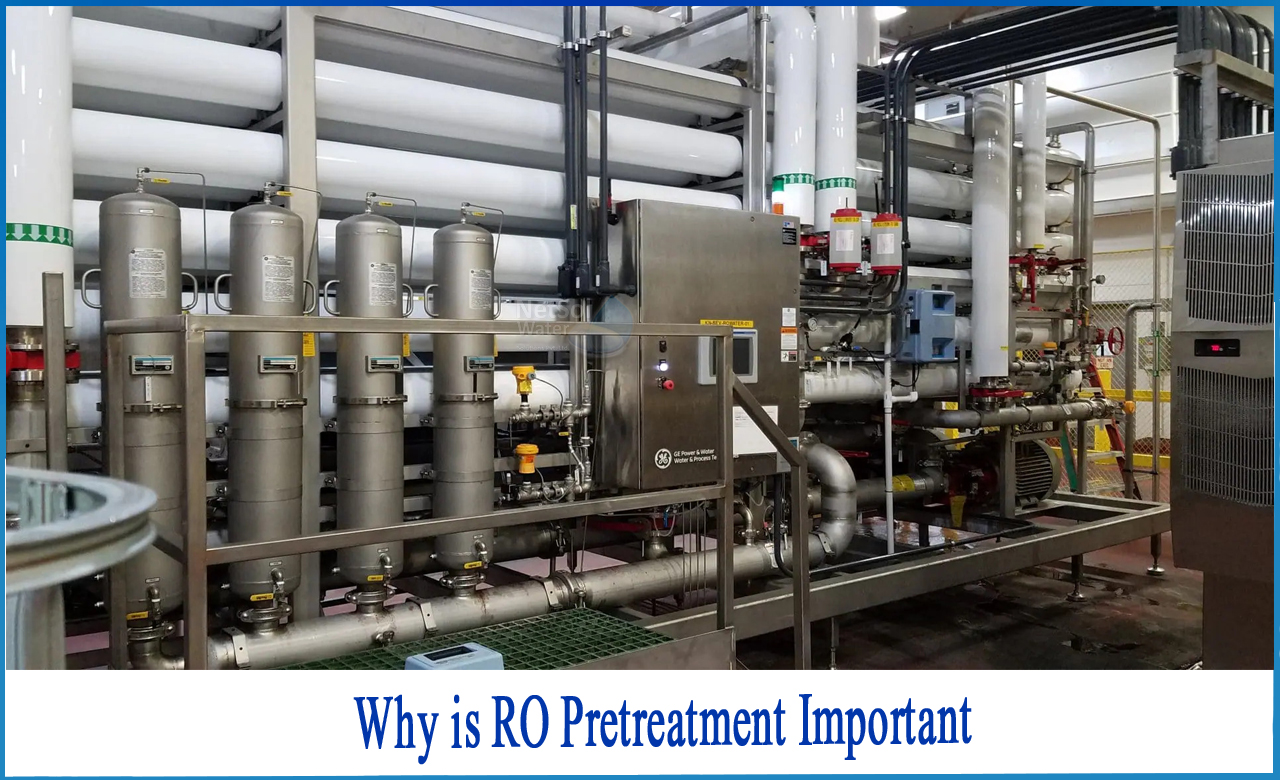Why is RO Pretreatment important?
Pre-treatment of RO system using both mechanical and chemical treatments is essential to avoid fouling, scaling, and expensive premature RO membrane failure as well as frequent cleaning needs.
The following is a list of frequent issues that RO systems may face as a result of improper pre-treatment_
1: Fouling
It happens when impurities build up on the membrane's surface, thus blocking it. Many pollutants in municipal feed water are invisible to the naked eye and are safe for human consumption, but they are big enough to foul (or block) RO systems fast. Fouling usually occurs in the front end of RO system, resulting in a larger pressure drop and decreased permeate flow. This results in greater running expenses and the need to clean or replace the RO membranes in the long run.
Given the incredibly small pore size of RO membranes, fouling will occur eventually, regardless of how good your pre-treatment and cleaning program are.However, if you have adequate pretreatment in place, you will be able to avoid having to deal with fouling issues on a frequent basis.
The following factors can contribute to fouling:
1: Colloidal or particulate matrix (dirt, silt, clay, etc.);
2: Organics (Humic and fulvic acids, for example);
3: Microbes are microscopic creatures (bacteria, etc.). Bacteria are one of the most prevalent fouling issues since today's RO membranes cannot withstand a disinfectant like chlorine, allowing microorganisms to grow and reproduce on the membrane surface. They may form biofilms on the membrane surface, resulting in severe fouling.
4: Filter media breakthrough upstream of the RO unit. GAC carbon beds and softener beds can develop an under drain leak, and the media can clog the RO system if there isn't enough post filtering in place.
Analytical testing can be used to assess if the feed water to your RO has a high risk of fouling. Mechanical filtering technologies are utilized to keep RO systems from clogging. Multi-media filters (MMF) and microfiltration are the most common ways for preventing fouling (MF). Cartridge filtration may be sufficient in some circumstances.
2: Scaling
Scaling can occur as some dissolved (inorganic) chemicals become increasingly concentrated, if these compounds surpass their solubility limitations and precipitate as scale on the membrane surface. Scaling causes a larger pressure drop throughout the system, as well as increased salt passage (reduced salt rejection), low permeate flow, and poor permeate water quality. Calcium carbonate is an example of a frequent scale that forms on RO membranes.
3:Chemical assassination
Chlorine and chloramines are not tolerated by modern thin film composite membranes. Chlorine and other oxidizers can 'burn' holes in membrane pores, causing irreversible damage. A greater permeate flow and a higher salt passage are the results of chemical assault on RO membrane (poorer quality permeate water). This is why, because there is no biocide to inhibit microbial growth on RO membranes, they foul up so quickly.
4: Mechanical damage
Pre and post RO system plumbing and controls should be included in the pretreatment plan. Mechanical damage to the membranes can occur if 'hard starts' occur. It might also occur if there is too much backpressure on the RO system. These issues can be addressed by employing variable frequency drive motors to start high-pressure pumps for RO systems, as well as adding check valves and/or pressure relief valves to prevent excessive back pressure on the RO units from damaging the membrane permanently.
Conclusion
Reverse osmosis is a tried-and-true method of producing water that is suited for a wide range of industrial applications that require deionized or demineralized water. After the RO system, further post-treatments such as mixed bed deionization can improve the RO permeates quality and make it appropriate for the most demanding applications. An RO system's pretreatment and monitoring are critical for avoiding costly repairs and unplanned maintenance. Your RO system should deliver many years of high purity water with the right system design, maintenance schedule, and expert service assistance.
Technical assistance and guidance
Netsol Water collaborates with a wide range of international organizations to tackle complicated RO problems by strategically integrating modern treatment technology with practical solutions.
If you need any technical help and guidance, or simply have a query regarding our water and wastewater treatment technology solutions, contact one of our expert advisers via phone at +919650608473 or contact via email at enquiry@netsolwater.com



